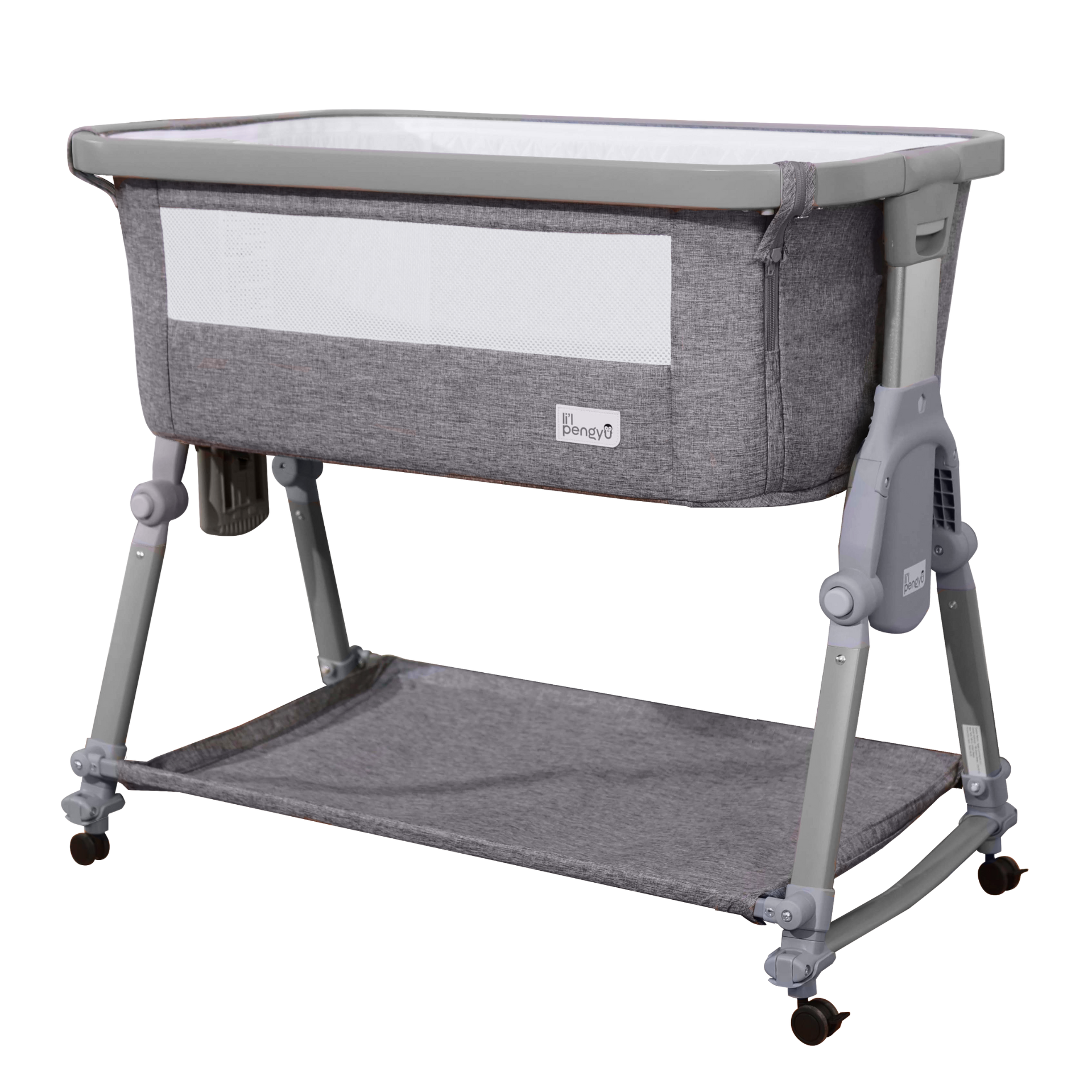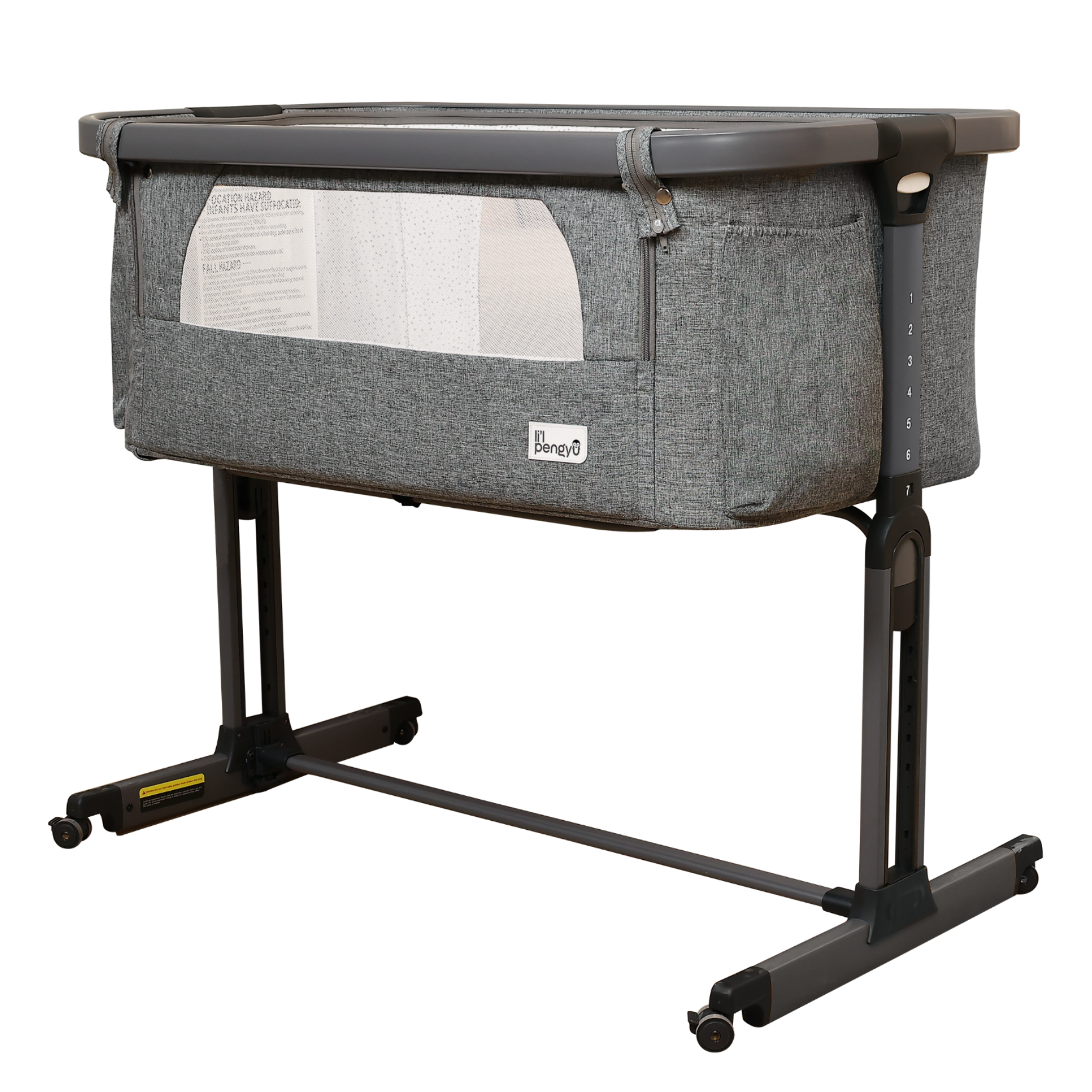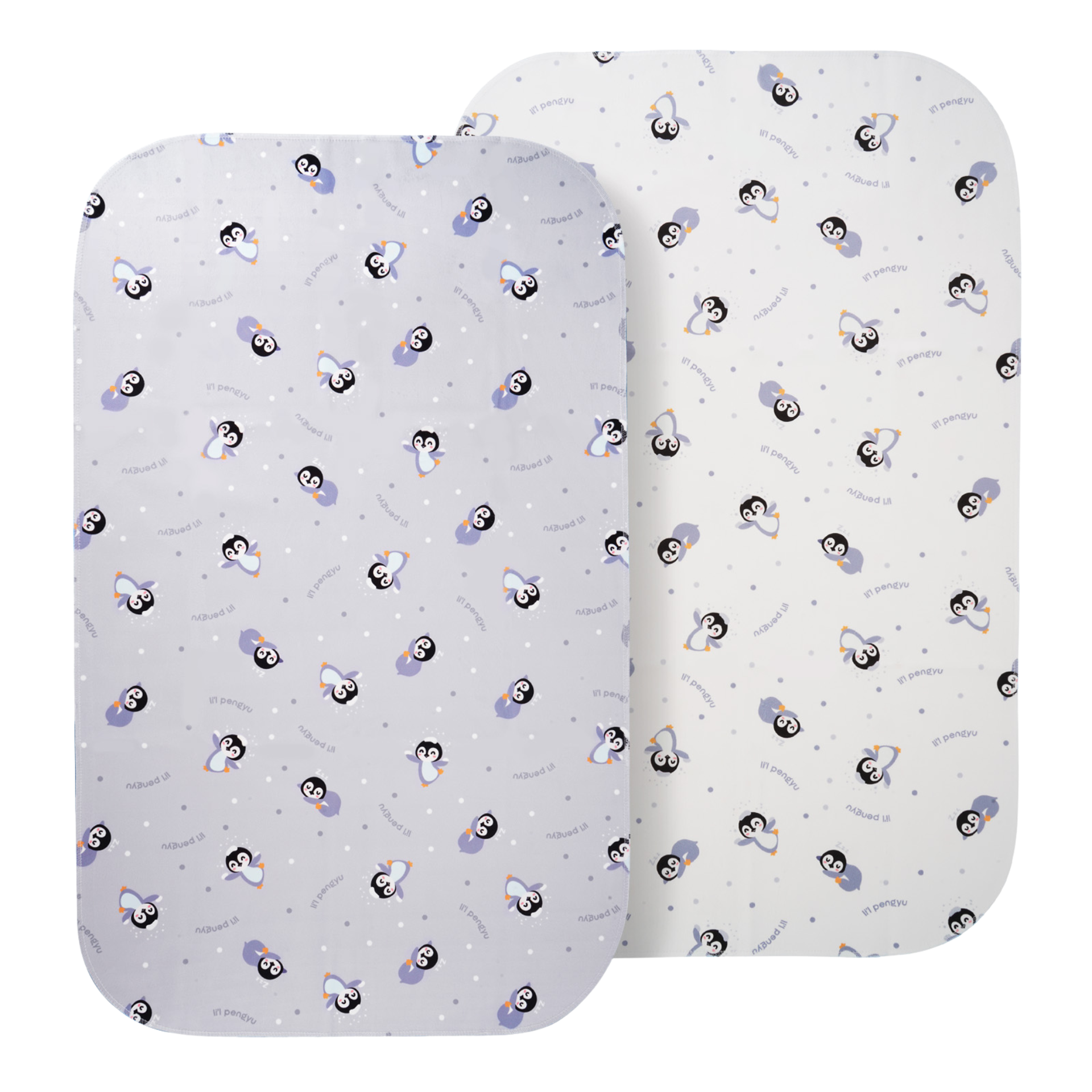Products like crib bumpers and sleeping positioners create more risks than benefits for your baby. Make sure you avoid these six products to keep your baby safe and sound in their crib.

The top priority for your baby is ensuring they’re always safe and sound, including while they sleep. You do everything you can to keep them safe and comfortable. Unfortunately, accidents happen, even in cribs. Nearly 4,000 babies die suddenly and unexpectedly every year in the U.S., a rate of 0.93 deaths per thousand live births. Many involve an unsafe crib.
This is largely why, in May 2022, the U.S. government signed the Safe Sleep for Babies Act of 2021 into law. This legislation stipulates that crib bumpers and inclined sleepers for infants are hazardous, and it’s against the law to sell or manufacture them.
This post covers those products and other unsafe crib items you’ll want to avoid to ensure your newborn is always sleeping safely.
Crib bumpers
The Safe Sleep for Babies Act prohibits bumpers and inclined sleepers from being sold or manufactured. Bumpers were initially thought to add safety to a baby’s crib, helping them avoid hitting their head against the crib or getting stuck between the wooden slats.
Unfortunately, bumpers can cause suffocation if a baby gets their face next to them. The U.S. Consumer Product Safety Commission (CPSC) found 113 fatal accidents associated with crib bumpers between January 1, 1990, and March 31, 2019.
Even though bumpers are now prohibited from being sold, you may still encounter them in used furniture or hand-me-downs. Always avoid crib bumpers in your baby’s crib.
Inclined sleepers
Inclined sleepers are used to lift a baby’s head while they sleep, often at a 30-degree angle. When babies sleep in these products, their chin may fall to their chest when they go to sleep. This position can restrict airflow, leading to suffocation.
According to the Consumer Federation of America, more than a hundred infants have died in inclined sleep products. Avoid any products that incline your baby while they sleep. One example is the Rock ‘n Play Sleeper from Fisher-Price, in which 32 babies died while using the sleeper from 2011 to 2019. The product was recalled in 2019.
Blankets and pillows
Many parents are understandably tempted to put a baby blanket in their little one’s crib. On the surface, it seems like a safe way to keep baby warm and comfortable. Maybe a family member has made one specially for your newborn or you have one that goes nicely with the room’s design.
Unfortunately, a blanket can be dangerous for your baby, no matter how you place it. Newborns and young infants can suffocate from a blanket that becomes accidentally placed over their faces. This means you should avoid draping it over the side of the crib or placing it over or under your baby. Pillows are also a suffocation hazard.
The American Academy of Pediatrics (AAP) recommends that babies be placed on their backs in a crib, play yard, or bassinet on a firm, flat mattress with a taut sheet on it. Never put a blanket, pillow, stuffed animal, or another object into the crib, no matter how soft it is, as all are suffocation hazards.
Sleep positioners
Sleep positioners can also cause suffocation in babies. These positioners usually have some kind of raised pillow or other support attached to them, and they can be tempting if you want your baby to avoid reflux or other issues while they sleep.
While these products were created to help keep babies in one position during sleep, and are sometimes called anti-roll products or nests, the FDA warned parents not to use them because of the increased risk. The agency says, “Using this type of product to hold an infant on his or her side or back is dangerous.”
Mattress wedges
Mattress wedges have often been used to lift a baby’s head while they sleep, whether to help relieve reflux or congestion. Just like inclined sleepers and sleep positioners, mattress wedges can lead to that dangerous chin-to-chest position that can cause suffocation.
Again, always make sure your baby is placed flat on their back to sleep. Avoid any kind of mattress wedge or raised pillow that lifts up their head too much. You want to avoid a position where their chin is too close to their chest.
Toys
Your baby may already have a favorite toy or stuffed animal that puts them at ease. It can be tempting to want to place their toy in the crib with them to give them some company while they sleep.
But always avoid putting anything in the crib, including soft toys and stuffed animals. This is especially important for children under a year or anytime they’re still unable to fully roll and pull themselves up to stand. Toys can cause injury or suffocation to young babies.
Where to find safe baby sleep products
The FDA reminds parents of best practices with the “ABCs of safe sleep”: Alone on the Back in a bare Crib. Make sure you’re only investing in crib products that keep your newborn safe during sleep. Make sure there’s nothing next to them in the crib, like blankets, pillows, or toys. Your baby products should always adhere to the latest safety regulations.
At Li’l Pengyu, our Bedtime Bliss Bassinet is CPSC and ASTM certified to ensure your little one is always safe. Its enlarged mesh sides prevent suffocation, and you can always see what your baby is doing. The bassinet is lightweight so it’s easy to carry and move, and it converts to a rocking crib if you need to soothe your baby to sleep.
Our Safer Sleep Bassinet is also CPSC and ASTM certified, and it allows you to link your baby to your bedside without having to worry about newborn co-sleeping safety risks.
Learn more by browsing all of our products or reaching out to the Li’l Pengyu team.







